We just returned home from an epic weekend trip to Empuriabrava. We went there to experience something that literally took our breath away: a freediving course in Costa Brava!
Trying new things and getting out of our comfort zone is something we love, and freediving had been on our wish list for way too long. So, we packed our stuff and headed to the coast to try freediving for the first time and get our certification. It was quite the experience!
In this post, we share our experience freediving in Costa Brava and the technical details of the course we took.
Spoiler alert: the weekend involved loads of laughing, holding our breath, and some cold water.
* Post written for the first time in July 2021 and updated in April 2024.
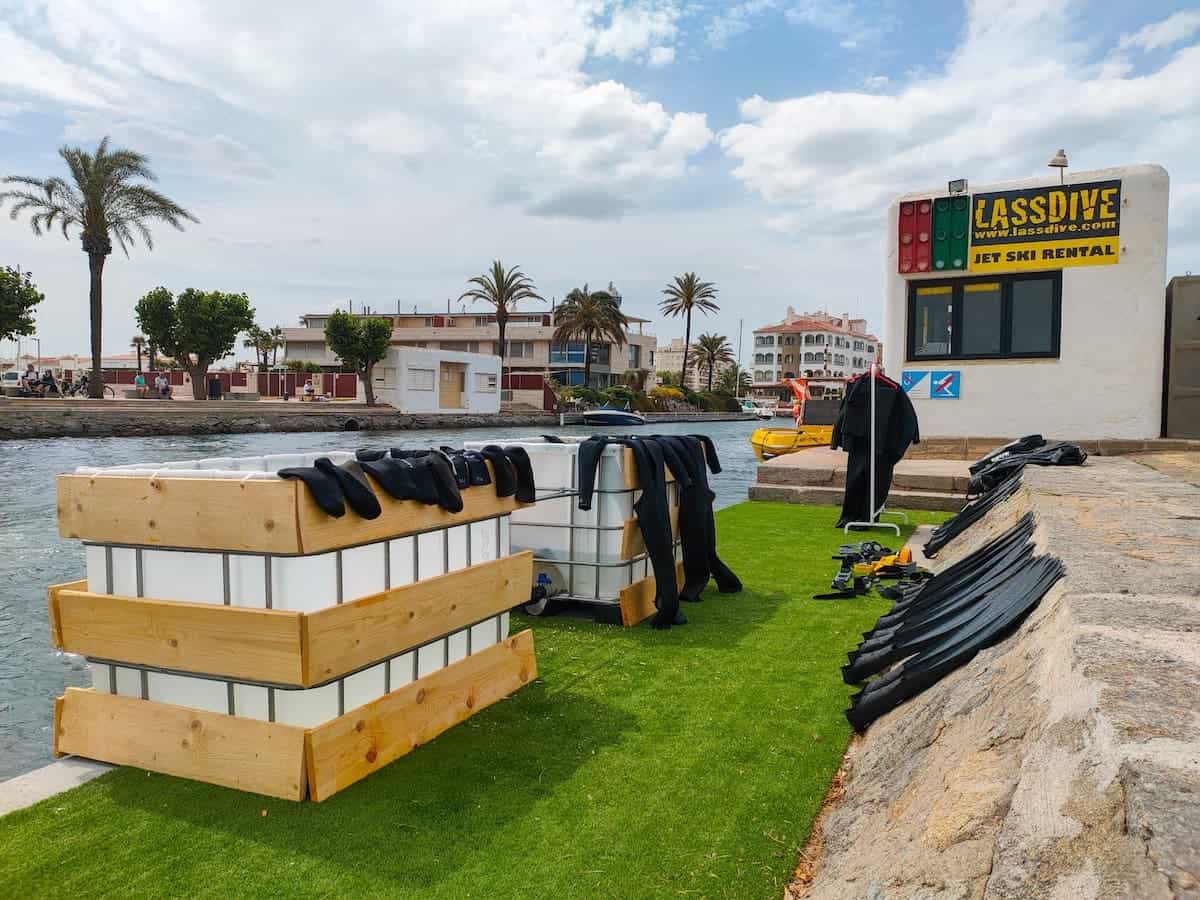
An overview of the freediving course in Costa Brava
- Duration: 2 days and a half
- Location: Empuriabrava and Cap de Creus (Costa Brava)
- Price: 270 €
Freediving, or breath-hold diving, is an underwater sport that involves holding your breath for as long as possible until returning to the surface. No air tank, no help, just the air in your lungs.
Our experience with the SSI Level 1 certification at Lassdive was truly unique. It’s the perfect starting point for those new to freediving and offers a comprehensive introduction to the sport.
If want to try freediving once before committing to it, the centre also offers an activity called Freediving Introduction. It’s perfect for those who aren’t sure about doing the whole course. The introduction lasts one hour and is done in a swimming pool.
However, we highly recommend the whole course as you go deeper into the theory you need to know to free dive (which is fascinating!), and you get to practise both in a swimming pool and the sea.
Lassdive was the first centre in the Iberian Peninsula to teach freediving. Our instructor was Miquel, the centre’s founder, and we couldn’t have gotten anyone better! We loved his friendly vibe and professionalism. He ensured we felt safe the whole time and gave us personalised advice to learn at our own pace.
One person from our group was from Canada, but Miquel had no trouble switching back and forth between Catalan and English. He speaks Spanish and French, so that’s excellent news for all non-Spanish or Catalan speakers who want to learn freediving in the Costa Brava.
Where does freediving course take place?
The course is divided into theory and practice. Theory is on Friday afternoon and Saturday morning. Swimming pool practice is on Saturday afternoon and open water practice on Sunday.
The theory and swimming pool classes took place in Empuriabrava, a touristy city in the Costa Brava (although they can be in Estartit as well). However, the “real dives” are in the gorgeous Cap the Creus. It’s a headland located in the far northeast of Catalonia, and one of the most beautiful parts of the Costa Brava.
The exact location depends on the state of the wind, sea, and currents. I our case, we did it right next to one of the best restaurants in the world, El Bulli by Ferran Adrià, now reopened as a creative food lab.
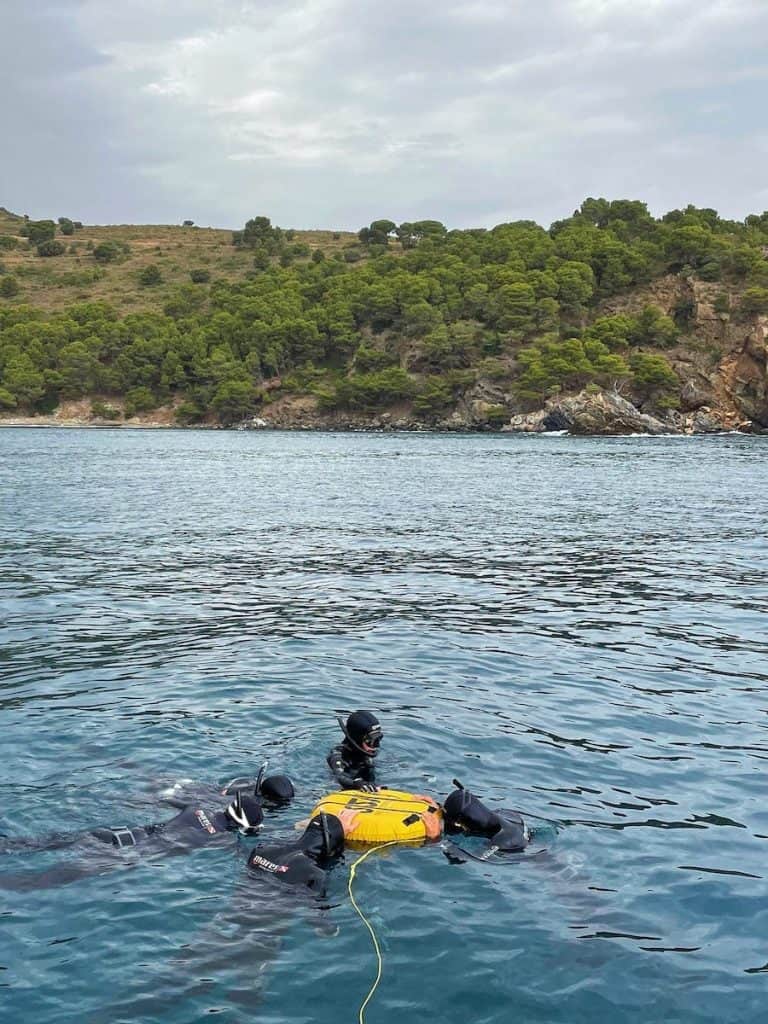
Once you register for the course, you receive an email with four theory modules to do online. You can look at those before the course starts, so you get a feeling of what you’ll do and need to know. However, don’t get obsessed with it! The instructor will go over it again during the weekend in a much more engaging way.
What you need to take the freediving course in Costa Brava
Not a lot!
You just need to bring a swimsuit and a towel. If you have one, we also recommend bringing a snorkel and mask.
You can borrow the rest of the equipment (wetsuit, weights, fins, and booties) from the centre, which is included in the price of the course. If you need or want to purchase some equipment, bear in mind that they offer discounts to students of 20 to 40%, so it’s also a good opportunity to get some high-quality equipment at a reduced price.
We also recommend you take sunscreen and some snacks for the boat trip on Sunday.
Oh! And if you plan to do the groceries in advance for your stay in Empuriabrava during the course, take into account that alcohol and freediving aren’t good friends! So, skip the wine and beers for that weekend.
Also, it’s great to eat foods rich in potassium, such as baked/boiled potatoes, spinach, or grapefruit. They help prevent cramps (likely to happen if you’re not accustomed to those loooong fins).
Our experience freediving in Costa Brava
Friday afternoon: Theory
We’re not going to lie… we were nervous about freediving. Taking one breath and holding it for as long as possible while going deep below the sea freaked us out a little bit.
It’s a good thing the course started with the theory. We felt calmer and more relaxed once we learned how our body works and the steps we needed to follow for a safe dive.
We don’t want to make any spoilers, but our body is freaking amazing! Miquel taught us how to breathe to relax, recover from a dive, and identify when our body is tricking vs when it is telling us that the need for air is real. Even if you’re not a biology fan, Miquel is so good at teaching that you won’t want to stop listening!
Friday’s theory class went by in the blink of an eye, although it lasted from 4 pm to almost 7 pm. Miquel regularly prompted us with questions to make us guess the answers and figure out why things work the way they do. He did an excellent job making it dynamic and relaxed at the same time.
Our group consisted of a bunch of freediving newbies. Some of us had dived before, but it didn’t matter at all. We were lucky because the group was great and had a lot of fun together.
Once the first part of the theory was over, it was time to rest and prepare for the next day’s practice.
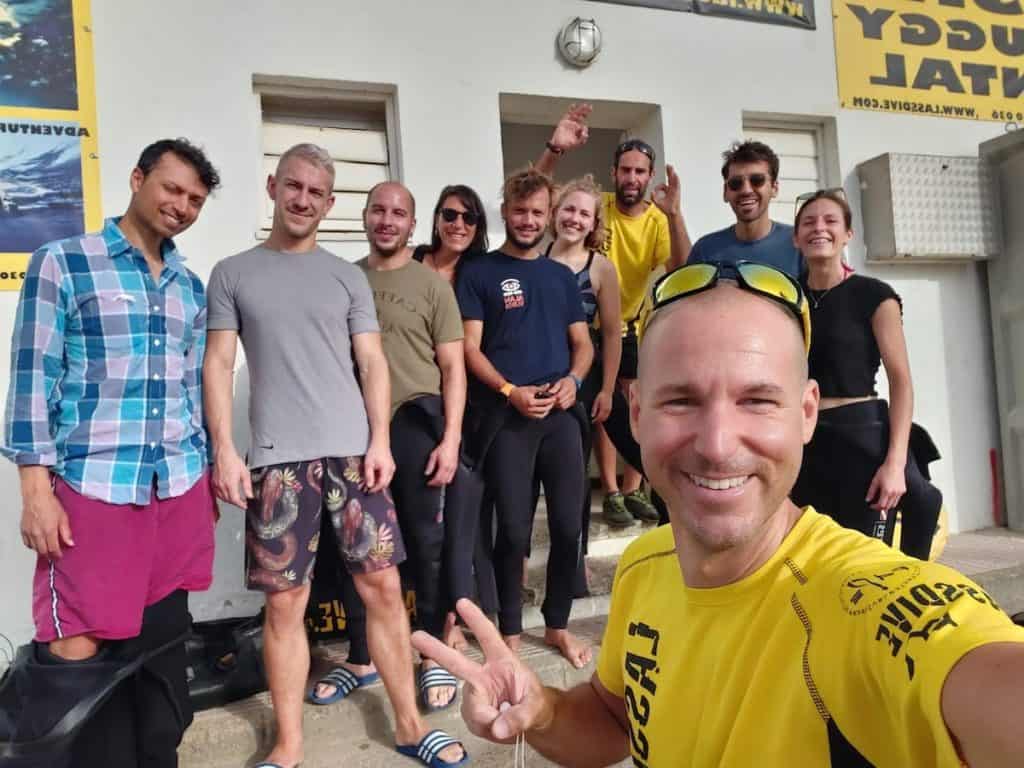
Saturday
Morning: Swimming pool practice
The day started early on Saturday. We met at 8 am to try out all the material we needed. Once we had everything, we hauled our butts into the vans and headed to the swimming pool (just a 10 min ride).
We first practised static apnea (STA), which means that we had to hold our breath underwater for as long as we could without moving. There was no technique; it was just relaxing, putting our faces in the water, and holding our breath.
We tried it several times, and with some tips and tricks from Miquel, we quickly broke our own records. Marina couldn’t hold his breath for more than 45 seconds (we tried at home several days before), and after some practice, she reached 1 minute and 15 seconds. Marc, on the other hand, went from 1 minute 36 seconds to 2 minutes and 30 seconds. Not bad for just a few minutes of practice, right?
Besides those exciting results, we also learned how to use the fins (the freediving ones are huge!), prepare for apnea, and fight against our brain when it tried to trick us into thinking that we were going to die.
The truth is we were impressed by how mental this sport is. The whole key is to just relax and listen to your body (not your mind). Easier said that done, though.
One cool (and scary!) thing was feeling the so-called freediving contractions. They’re simply spasms in your diaphragm telling you your body needs to release carbon dioxide. To some people, they were so small that they couldn’t even see them, but for other people, you could tell they were having them as their upper body was twitching and convulsing.
Afternoon: Lunch + More theory
Starving from the effort made at the pool, we went out for lunch with the whole group. It was a nice opportunity to get to know everyone and learn more about each other’s lives.
In the afternoon, we finished the theory. We mostly talked about safety, the buddy system and how to react if a person has a blackout. Super interesting and useful!
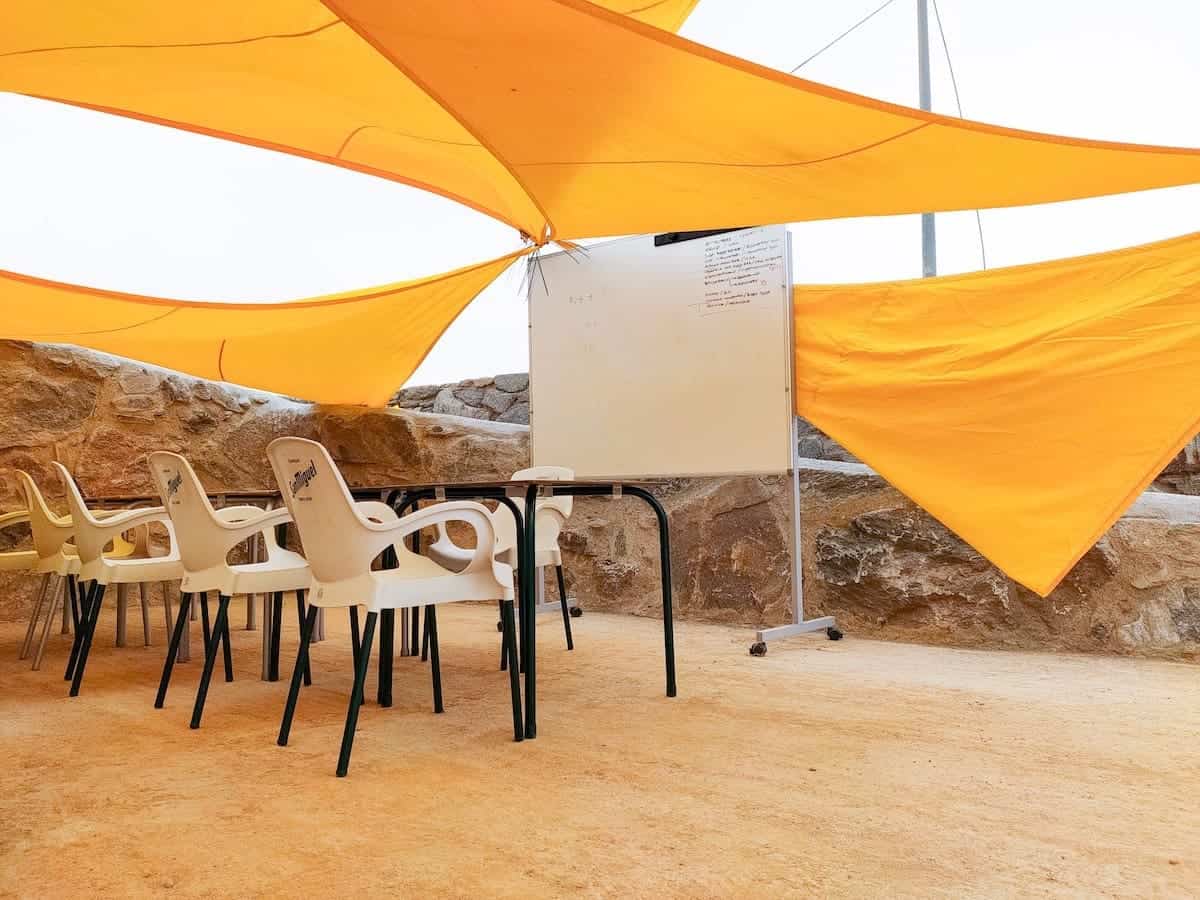
Sunday: Practice in the sea
After the swimming pool, the following “get out of our comfort zone” challenge was freediving in the sea. Sunday’s lesson took place in Cap de Creus, a 20-minute boat ride from Empuriabrava.
Once we got there, Miquel divided us into two groups of four. While one group was practising in the water, the other was in the boat recovering and chilling, but we used some of the time to snorkel around the boat since the location was beautiful.
When it was our turn, we gathered around the buoy that held the line we used to go down. This allowed us to relax while taking the preparation breaths.
We learned different techniques for starting the freedive and how to move with and without the line. Then, we tried one by one with Miquel on our side, making sure we were alright and giving some tips on the spot.
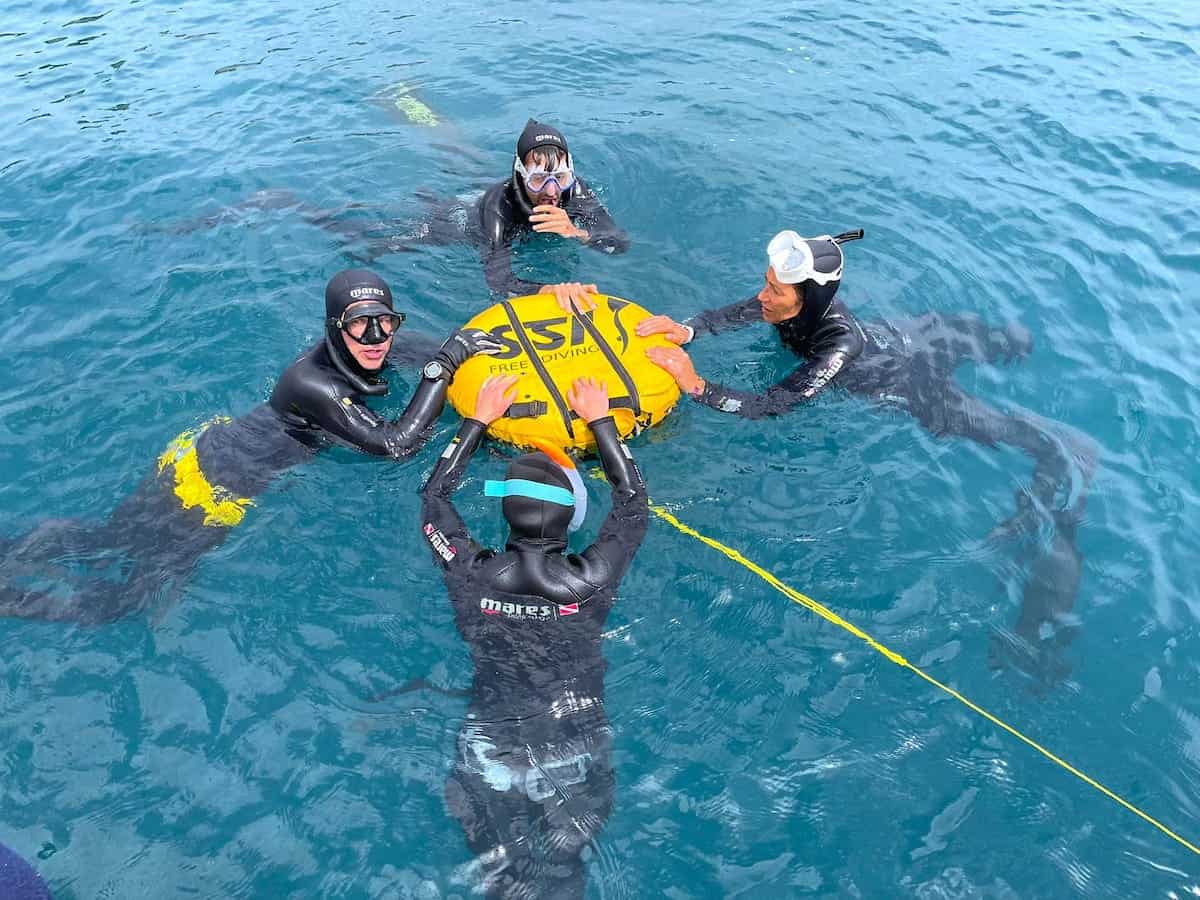
We practised several exercises: pulling the line to go down, practising the duck dive or simulating a blackout rescue at 10 m below the surface. Everything becomes harder in open waters, but it also brings more fun.
Some people had difficulties, mostly in equalising the pressure on their ears. Marina, for example, had some problems doing it upside down, so she had to descend upwards instead to train the ears. She focused on this while staying as long as she could underwater instead of going deeper.
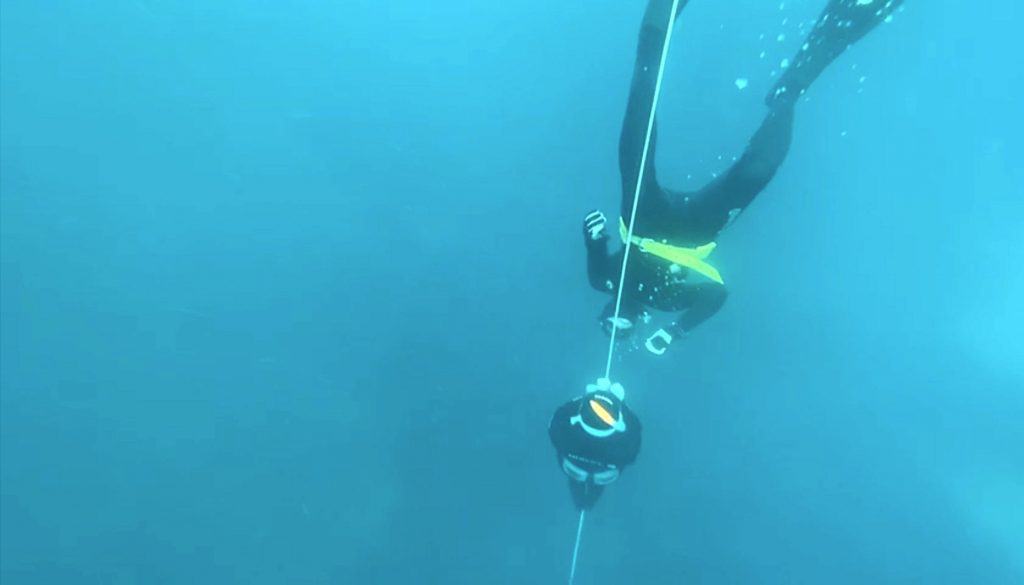
Conclusions about the freediving course in Costa Brava
As you can tell because we’ve written this chronicle, we made it alive!
We can assure you that we were nervous and psyched ourselves out with the fear of dying surrounded by water. But with the group and Miquel’s incredibly supportive attitude, we achieved way more than we expected.
Marc consistently reached the bottom (around 12 m) without problem, and Marina ended up getting down 6 meters and staying there for a little while. At some moments, it was hard, but others felt peaceful and magical like being surrounded by a school of fish or hovering over the sea floor.
One unexpected takeaway was discovering to what extent our brain was lying to us. For example, Marc felt the worst part was descending from 7 m to 10 m because his brain told him he needed to go up and get some air. However, once he reached the end of the line (10 m) and turned around to start going up, his mind realised that the air was seconds away, so it relaxed, the urge to breathe disappeared, and he could stay underwater a little longer. Funny thing how our brains work!
To wrap up a fantastic weekend, we had a wonderful farewell lunch in front of the beach, and some of the people decided to stay an extra day to return to the sea and practise a bit more.
Overall, it was an incredible few days of learning new things, and we are definitely inspired to dive deeper into the freediving world!
Things we learned from our freediving experience
- Freediving is very different from diving. Diving is more like a quiet walk in the woods, where you can look at the flowers and animals. Freediving, on the other hand, would be more like running uphill. Your brain is yelling at you to stop, and you just have to ignore it, relax and keep moving. Like most sports, it involves pushing your limits to improve.
- It’s totally okay not to reach the 10 m of depth or not to hold your breath for 3 minutes. The important thing is to give it a try and have a great time doing it!
- Freediving with a buddy is essential for your safety and it’s always more fun!
- Staying relaxed is key to performing better and enjoying the experience.
- Feeling the diaphragm contractions for the first time is pretty damn intense!!
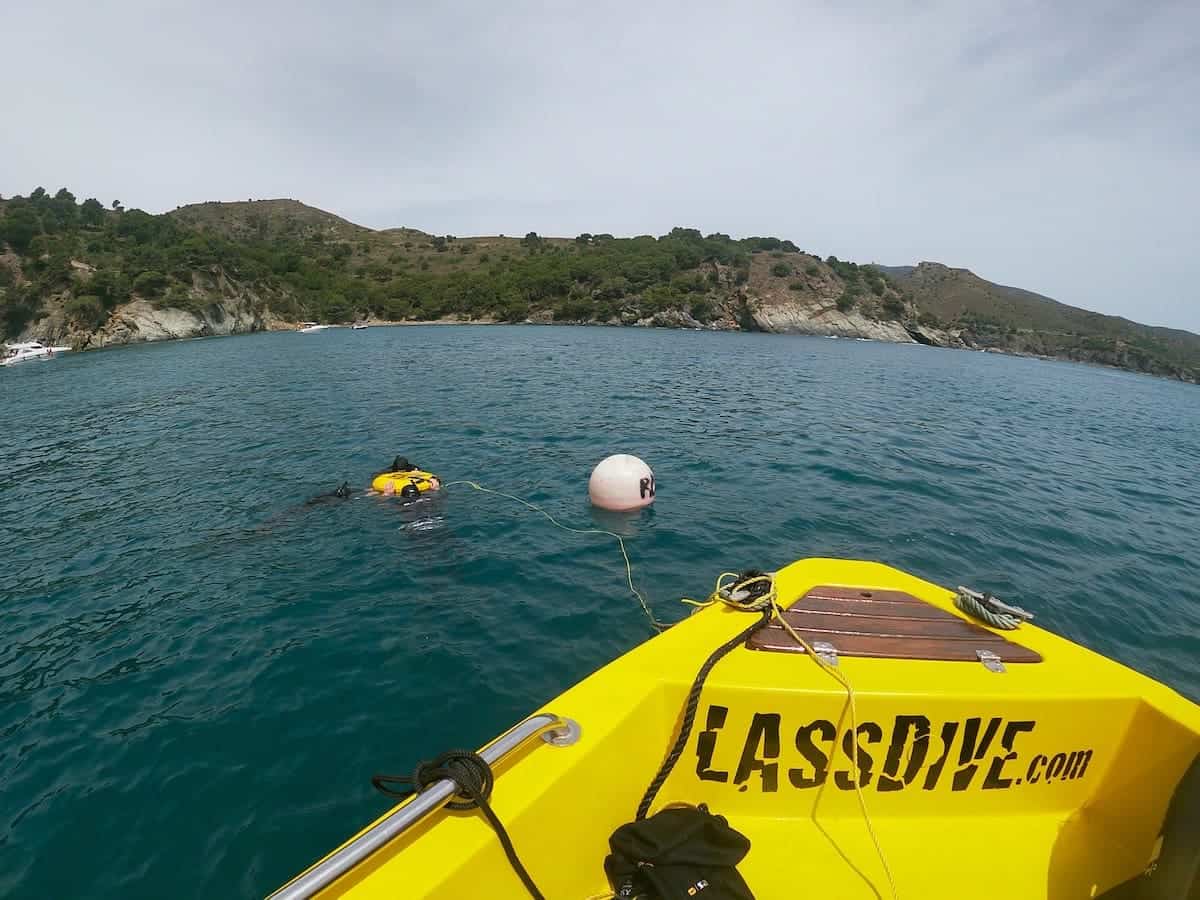
That’s all for this adventure! If you decide to give it a try, share your experience with us. We’d love to hear about it! And if you do it with Lassdive, say hi to Miquel for us.
Can’t wait to try freediving? Let’s play a game. Breathe in, return to the top of this page and read until you can’t hold your breath any longer. What sentence did you get to?
More things to do in the Costa Brava
We’ve written several posts with adventures to do in the area. Here are some suggestions:
- Via ferrata Cala del Molí: Get ready to climb the only via ferrata on Europe’s coast. Impressive panoramic views over the Mediterranean Sea are guaranteed!
- Seven beaches in the province of Girona that aren’t packed during summer: Get away from the summer crowds by hiking to one of these secluded beaches in the Costa Brava.
- Herbocaiac, a foraging and kayaking adventure in the Costa Brava: A kayaking, snorkelling, and foraging experience in Palamós. You’ll learn about the region’s plants and algae and get immersed in a beautiful landscape while doing some exercise.

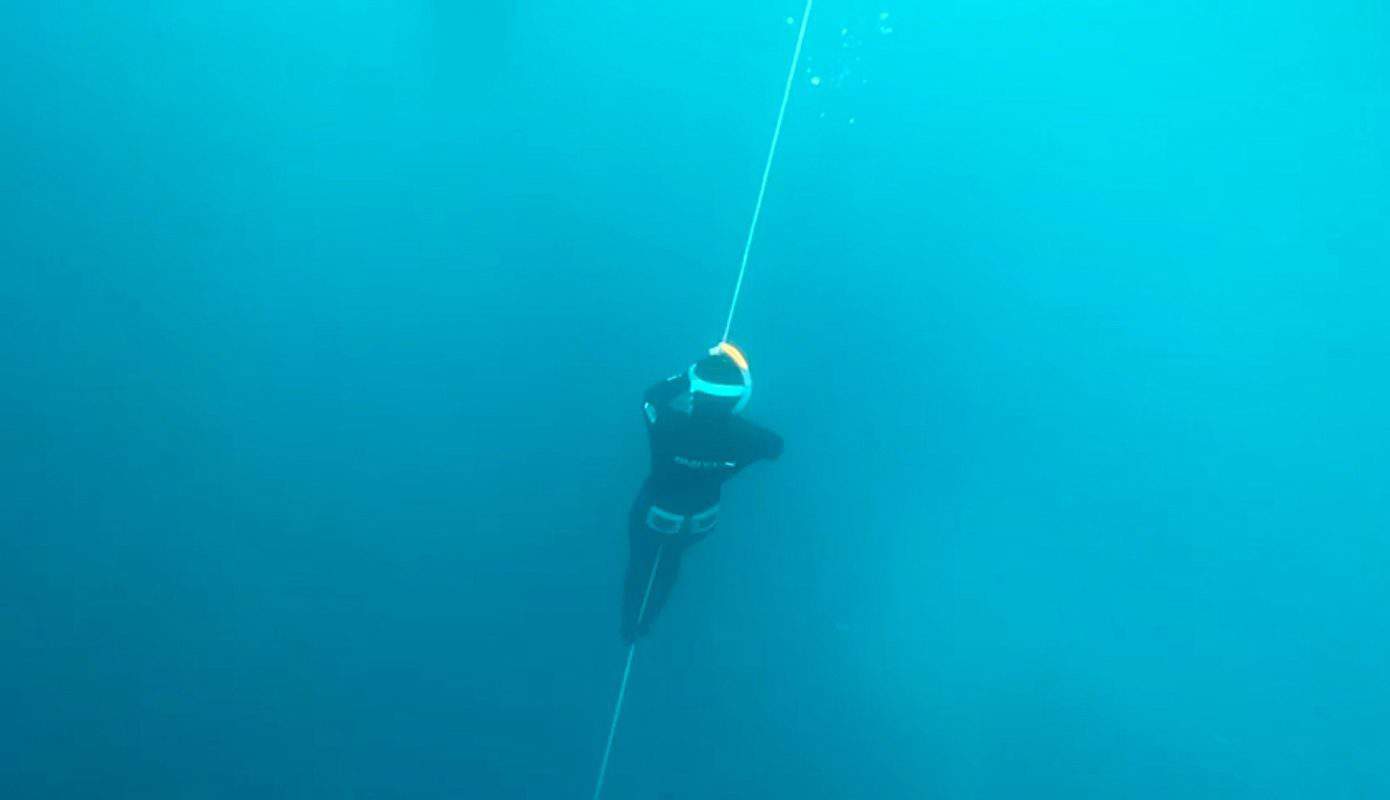
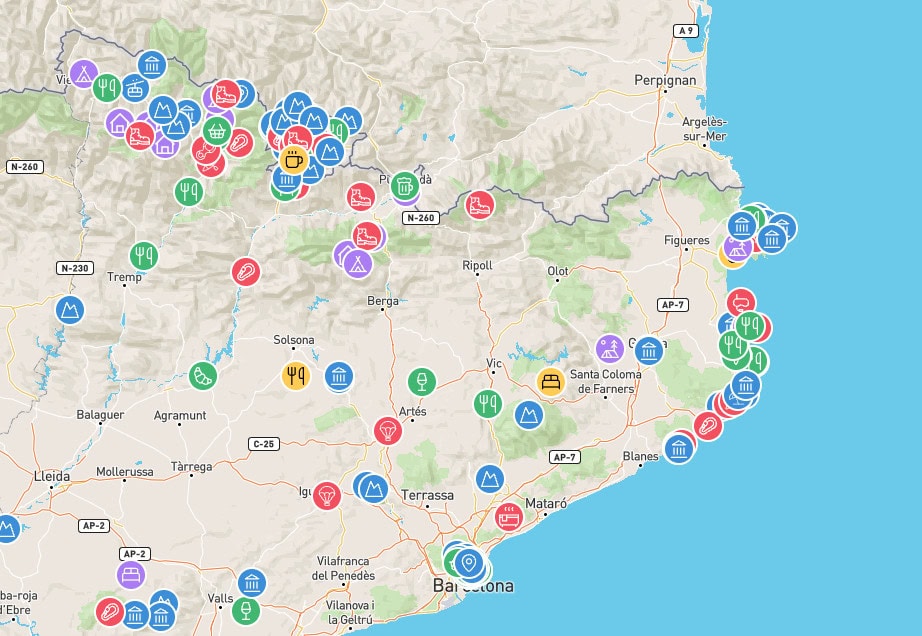
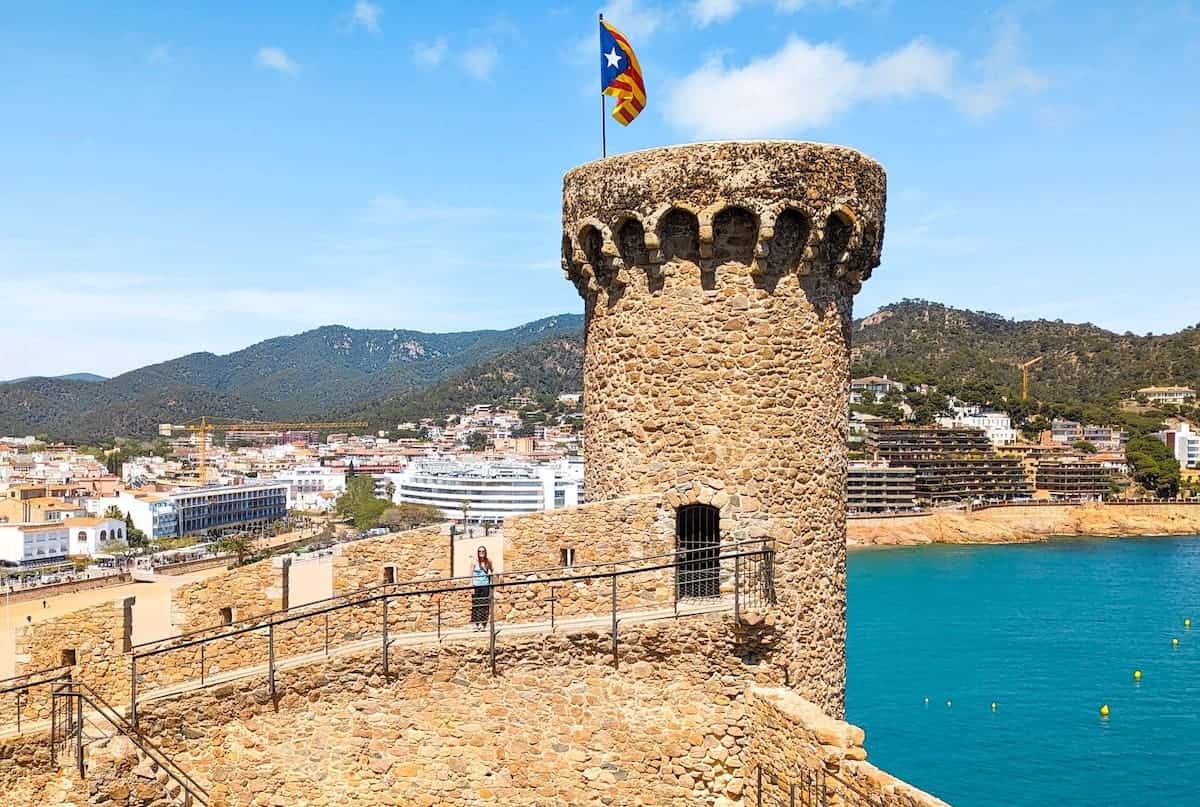

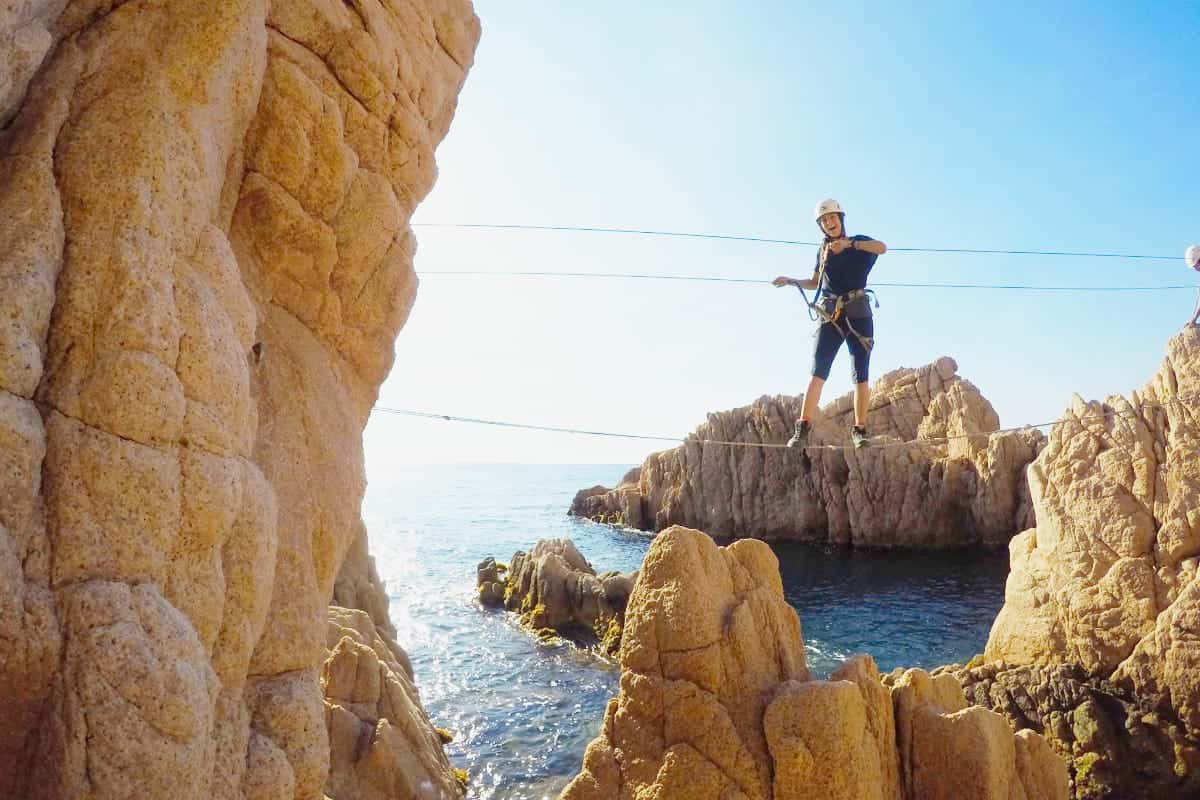
This is such a good write up! Thanks for sharing! It’s also been on my list for a while, and has been postponed because of COVID! I am determined to try it this year though (hence looking up things online)! The article wasn’t timestamped – when did you do this? And have you continued to train?
Hi Susie!
Thanks for your comment, we’re glad you’ve enjoyed the read! You should definitely give it a try, it’s been one of the highlights of our year. We did it in June this year. Since then, we’ve practised in the swimming pool and used everything we learnt to bring our snorkelling game to the next level. It requires some effort, but the rewards are incredible. Let us know your experience when you try it! 😉